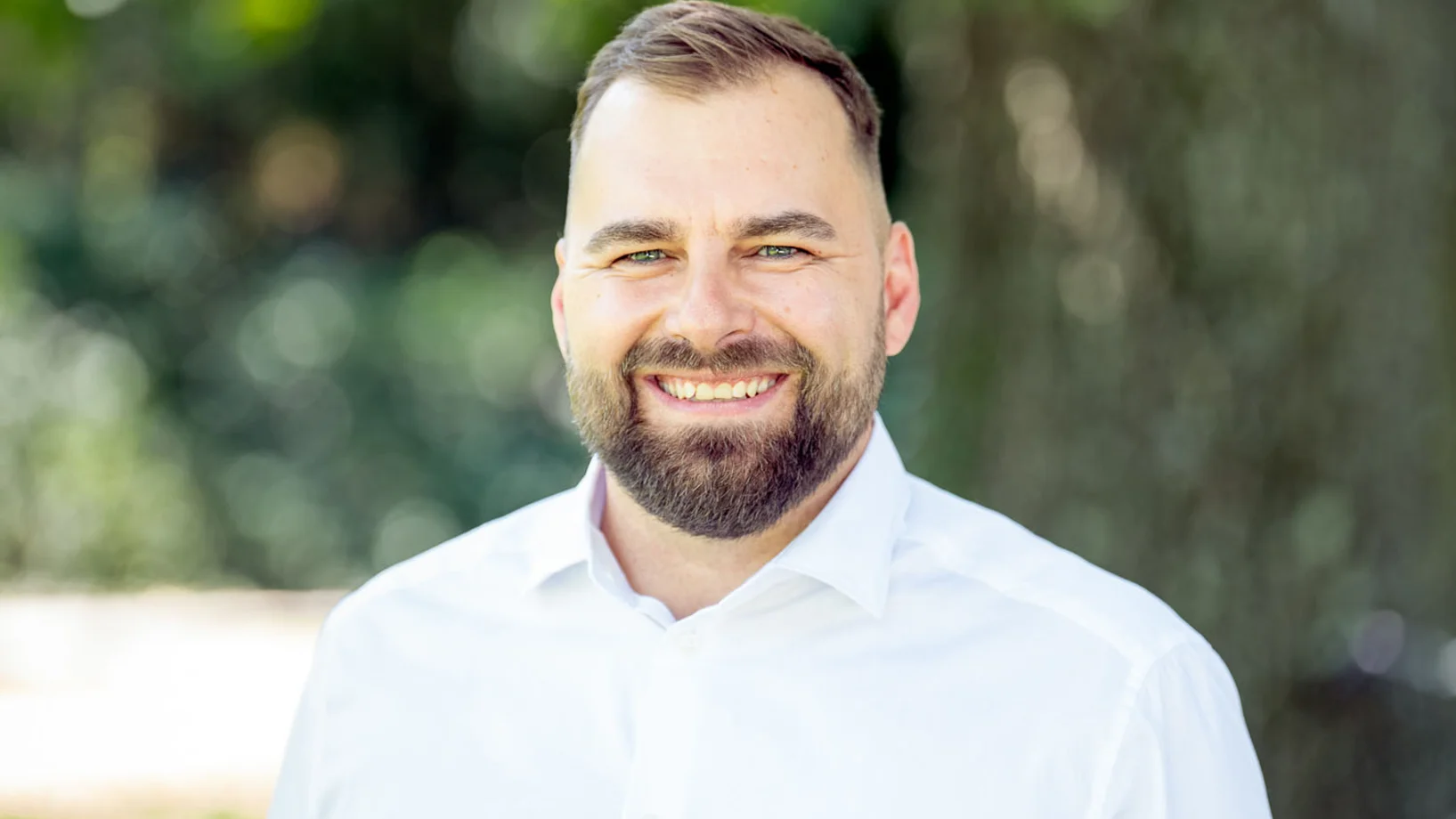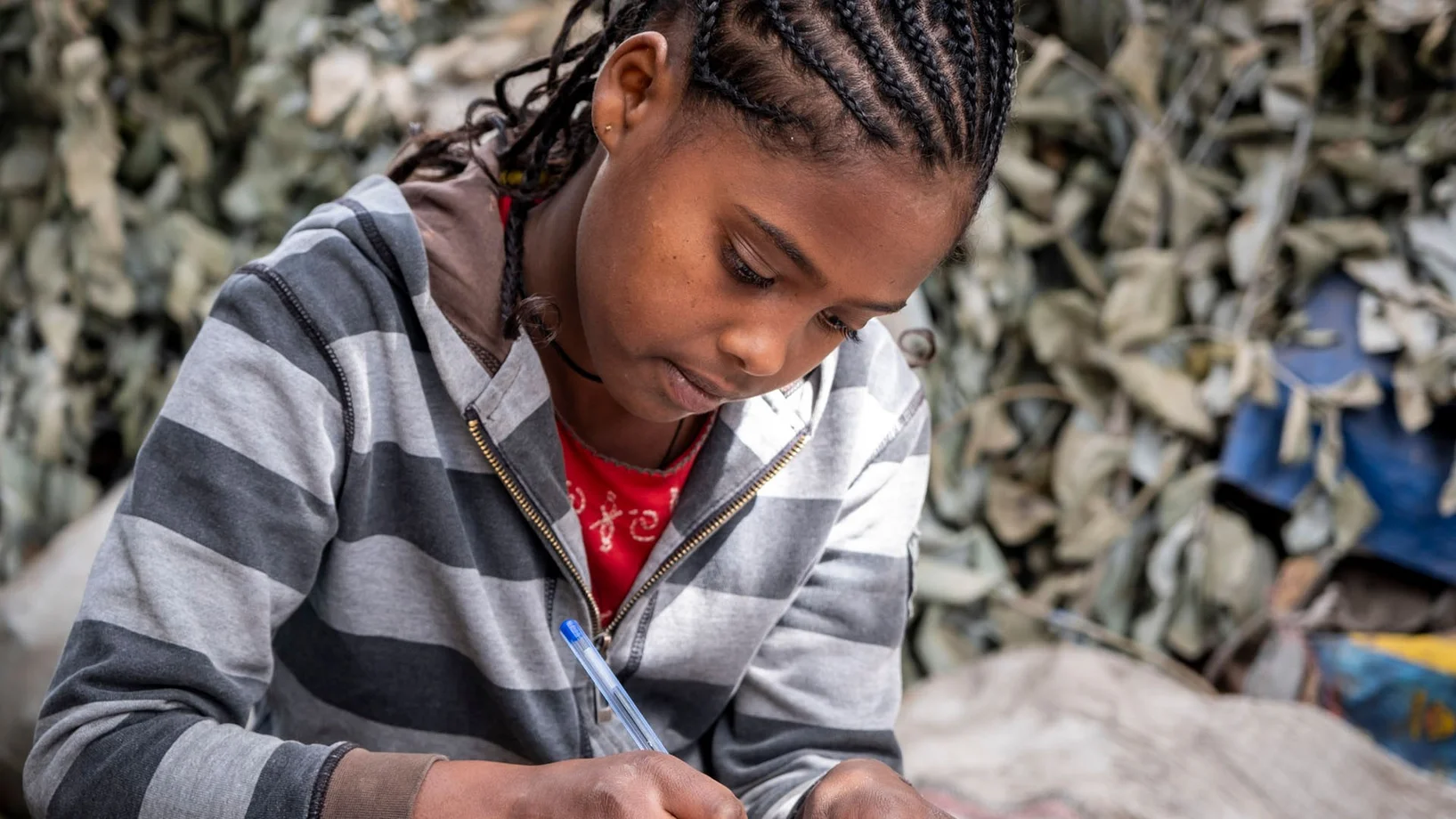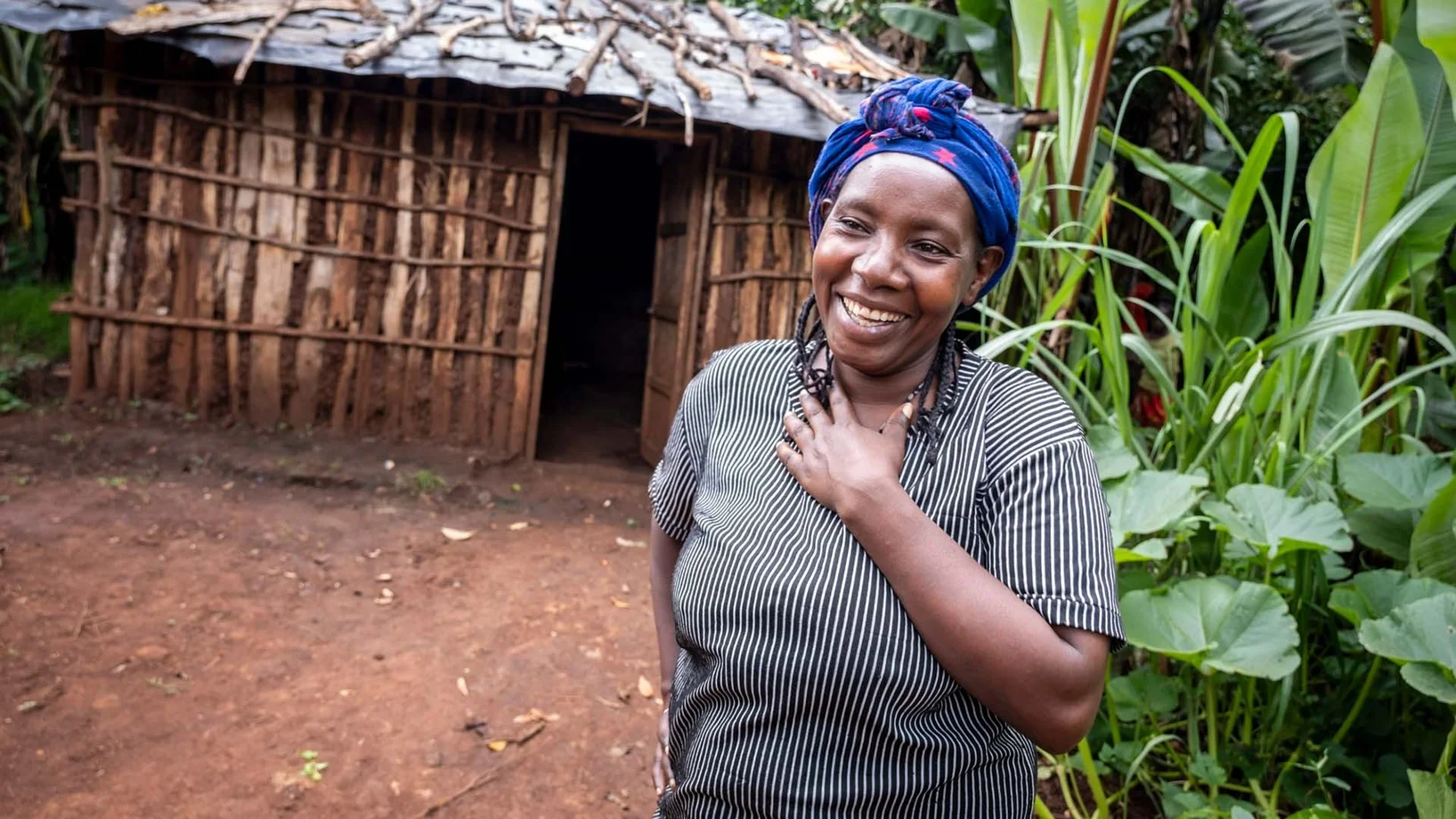Direct line between Swiss donors and Ethiopian mothers
Zurich/Addis Ababa, November 23, 2021 - The Swiss aid organization Menschen für Menschen is now offering its supporters and interested parties direct insights into its development projects: Donors can get to know the aid recipients via video calls. “The digital tools make it possible for people in Switzerland and Ethiopia to meet on an equal footing,” says managing director Kelsang Kone. The next event takes those interested to the slums of Addis Ababa and there to a key project of the foundation: extremely poor mothers receive vocational training and thus the opportunity to work their way out of their hardship.
In Ethiopia, the expansion of the mobile phone network has progressed rapidly and the number of internet users has risen sharply. With the start of the corona pandemic, schools, companies and organizations around the world were forced to digitize their processes more. Since then, many business meetings have taken place on video platforms. “These social changes offer us a great opportunity,” explains Kelsang Kone: “We can now enable person-to-person conversations: This creates a new transparency and closeness – and a very personal North-South dialogue.”
At the next event in this discussion format, those interested can join in for a meeting with young mothers from Ethiopia's capital Addis Ababa. The women have just completed their training in a vocational training course run by Menschen für Menschen. There they were trained to become housekeepers and cooks - skills that are in demand in the booming capital and will enable them to lead an independent life from now on.
To be accepted into the vocational training course, extreme poverty is the main admission criterion. The interview partners Hanna Dejene and Nejat Mustafa in the video chat also have corresponding biographies: The young women were guest workers under inhumane conditions in Arab countries in order to be able to materially support their parents back home in Ethiopia. Back home they started families, but severe blows of fate struck them. Nejat lost her house in a flood. Both women's infants were malnourished because there was not enough breast milk and there was no money for milk substitutes. Menschen für Menschen took the small children into a nutrition program. While the mothers completed their vocational training, they were cared for in the daycare center run by Menschen für Menschen. The new issue of “Nagaya Magazine”, the donor magazine of Menschen für Menschen, reports on the life stories of the two graduates and on the foundation’s vocational training, which 1,170 women have completed so far.
In addition, those interested can now get an idea in the video conversation: Among other things, the graduates want to report on their experiences during vocational training and their plans for the future. The event will take place on November 25th at 12.30 p.m. Those interested can register for the event using the following link:
Register now
Über die Stiftung Menschen für Menschen
Menschen für Menschen setzt sich gegen Armut und Hunger ein. Die Stiftung wurde von dem Schauspieler Karlheinz Böhm (1928 – 2014) gegründet. Im Geiste des Gründers schafft das Schweizer Hilfswerk Lebensperspektiven für die ärmsten Familien in Äthiopien. Ziel der Arbeit ist es, dass sie in ihrer Heimat menschenwürdig leben können. Schwerpunkte der einzelnen Projekte sind Frauenförderung, Berufsbildung, Mikrokredite, Kinderhilfe, Familienplanung und landwirtschaftliche Entwicklung. Die Komponenten werden nach den lokalen Bedürfnissen kombiniert und mit sorgfältig ausgewählten einheimischen Partnern umgesetzt.





